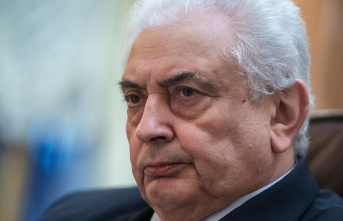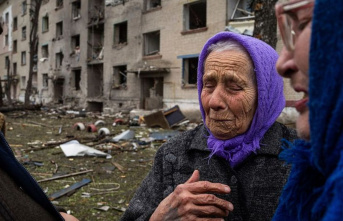TIMBUKTU (Mali) -- Zahra Abdou was arrested nine years ago by Islamic extremists in northern Mali on charges that she had shown her hair and wore an outfit they claimed was too tight.
Al-Qaida-linked militants seized control in 2012 of the fabled desert centre. They whipped Abdou before a crowd of residents. The extremists stopped older women from stopping the flogging, but they tried to stop it.
She recalled that she received "dozens" of lashes in front a large crowd. The pain caused her to pass out. It was humiliating for me. I felt embarrassed in front of my neighbors for a long time."
She says that the trauma continues to haunt her. Since July's announcement by France that it would halve its 5,000 troops present in Maliby 2020, her anxiety has only increased. The French military will close its bases at Timbuktu, and other northern centres, after years of fighting against jihadism in Mali's North.
Abdou said that just as the Taliban have returned to power in Afghanistan she is afraid it will be a matter time before the extremists who reprimanded her once again rule Timbuktu, and other northern cities of Mali.
She is now 30, and still struggles with insomnia. "I fear that the same thing will occur that happened in 2012," she said. "This is why I didn't finish my baccalaureate. I was too traumatized. I wanted to study commerce to be a businessman.
"Even now, I still have pain in my foot. She says she believes a piece from that day of glass is still there.
Timbuktu was a hub for Islamic scholars, who practiced moderate Islam for centuries. A new group of extremists emerged from Algeria in 2012, taking advantage the Mali government's absence in the north.
Soon, the extremists started to enforce their strict interpretations of Islamic Shariah law. They flogged Abdou and amputated the hands of suspected thieves. Mali's Ansar Dine militants, also known as Ansar Dine in Afghanistan, attacked historic cultural sites they claimed were idolatrous. They destroyed UNESCO World Heritage Sites and treasured mausoleums. They also prohibited music.
The veil was required for women to cover their heads, and girls were not allowed to be in the same classroom with boys.
The rule of the Taliban in northern Mali was short-lived, unlike in Afghanistan. France intervened just one year later and forced Ansar Dine out of Timbuktu along with other northern cities in 2013. A woman was also elected to the Mali's National Assembly as a deputy representing Timbuktu.
The Islamic extremists, however, were not defeated completely. They dispersed into the desert where they launched scores of attacks against the Malian military as well as U.N peacekeepers.
Residents of Timbuktu claim that militants are not far from the city's edge. They've seen the men wearing long beards in their Toyota Hilux vehicles nearby. They say some of the extremists visit town to shop at the local market. However, no one dares to report them for fear that they will be retaliated against.
France will withdraw its troops from Timbuktu but the city will be protected by Malian forces, 800 U.N. peacekeepers and mainly from Burkina Faso. According to the French military, French bases in Tessalit (and Kidal) will be closed down as well.
Aboubacrine Cisse, Timbuktu's Mayor, is not afraid to express his dismay at France's decision ending Operation Barkhane.
Cisse stated that "our defense and security forces are overwhelmed" by Timbuktu's security situation. He said that the withdrawal of allied forces like Barkhane would create a vacuum which can be filled with any armed group.
Eight years have passed since the extremists fled to the desert. Life has been almost the same in Timbuktu. Music has been restored to the mausoleums, and cultural events take place every weekend.
Timbuktu residents are anxious about the departure of French troops. They long for their city to be a popular tourist destination.
The city and the surrounding area hosted an annual January music festival that attracted musicians from all over the world for years. Before extremists began kidnapping foreigners to pay ransom, there were hundreds of backpackers who flocked here and took photos in front the city's sign. Timbuktu is synonymous for one of the most remote places on the planet.
Salaha Maiga is a young promoter for a local music festival which encouraged reconciliation through cultural performances. She fears that the French will leave, "all that has been rebuilt" since 2012.
He says, "Even today the army doesn't control more than 30 km (about 19 miles), outside the city Timbuktu and 80% territory around Timbuktu are controlled by jihadi group,"
Abdou, the young woman publicly whipped in 2012, shares this opinion. She is now married and she says she hopes to have children, but she worries about the kind of life she would lead if extremists take control of Timbuktu.
She says that "the jihadis are already in Timbuktu. They just don't have enough strength to run it." "If there isn't enough military force in Timbuktu the extremists will certainly come back."











